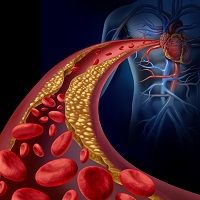Article
Associations Between Atrial Fibrillation and Silent Cerebral Infarctions
Author(s):
A meta-analysis of many older studies may explain the recent observation that patients with atrial fibrillation (AF) frequently suffered cognitive impairment without suffering from any signs of stroke.

A meta-analysis of many older studies may explain the recent observation that patients with atrial fibrillation (AF) frequently suffered cognitive impairment without suffering from any signs of stroke.
The study published in Annals of Internal Medicine, concluded that patients with AF face more than twice the normal risk of “silent strokes” that occur without symptoms but can damage the brain.
Researchers from Massachusetts General Hospital used records from 4,407 patients (505 with AF and 3,902 without AF) who were checked with either computed tomography (CT) or magnetic resonance imaging (MRI) for signs of silent cerebral infarctions (SCIs).
AF, they found, was associated with SCIs in patients with no history of symptomatic stroke (odds ratio [OR], 2.62; 95% confidence interval [CI], 1.81 to 3.80).
“Although SCIs do not present with acute stroke symptoms, they have been reported to be associated with more than 3- and 2-fold increases in the risk for symptomatic stroke and dementia, respectively,” the study authors wrote.
“The prevalence of MRI-diagnosed SCIs in the general population is between 8% and 28% (39). This prevalence is approximately one half of the estimated prevalence of SCI in the AF population.”
The research team began its work after another meta-analysis found that AF is associated with a 40% increase in the risk for cognitive impairment (95% CI, 1.19 to 1.64). This association appears to be independent of a history of symptomatic stroke and other co-morbid conditions, such as advanced age, hypertension, heart failure, and diabetes.
SCIs seemed like a possible explanation, so the new study authors began to round up existing work on the topic and found considerable contradiction. Several studies showed a significant association between AF and SCIs in patients who had never suffered an obvious stroke, but several other studies failed to reproduce those results.
Keyword searches turned up 1,723 potentially informative titles and abstracts, but fewer than 20 of them passed enough tests of relevance or quality to end up in any of the final analyses.
Still, despite the relatively small number of studies used in the final tally, the authors of the new paper believe the strength of the observed association leaves little room to doubt its existence. Of the 4,407 patients (from 9 studies) used in the overall risk calculation SCIs appeared in 230 patients with AF (45.54%) and 610 patients without AF (15.63%).
When the researchers pooled studies by technology, they found that MRI consistently detected more SCIs (prevalence, 0.40; CI, 0.29 to 0.51) than did CT (prevalence, 0.22; CI, 0.13 to 0.32).
However, the overall difference in detection rates applied about equally to all patients, regardless of whether they had AF, so the observed association between AF and SCI was about the same no matter the method of detection.
Only a handful of the studies used in the meta-analysis distinguished between paroxysmal and persistent AF, and those that did, found similar risks of SCI. The pooled OR for the association between paroxysmal AF and SCIs was 3.83 (CI, 2.17 to 6.75) while the pooled OR for the association between persistent AF and SCIs was 3.87 (CI, 2.20 to 6.80).
The study authors noted several limitations to their work, particularly the heterogeneity among the studies that were included, but they also asserted strengths that ranged from the thoroughness of their search to the geographical diversity among the underlying studies they used.





